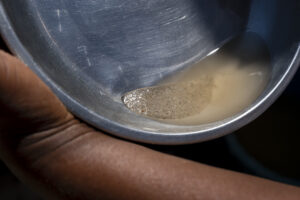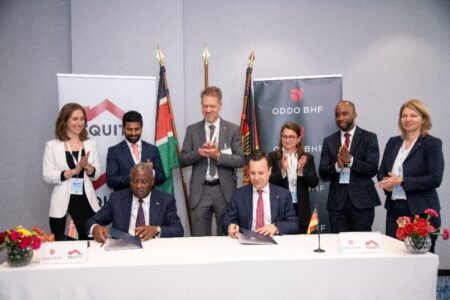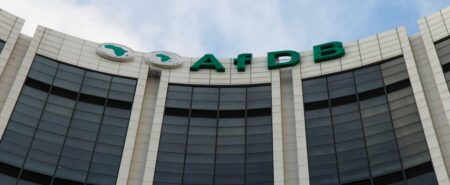Online retail forex trading has seen great growth globally over the past decade. This growth has primarily been driven by advancements in technology, increased internet penetration, and a growing interest in financial markets. Africa, with its youthful population, presents a promising landscape for the forex trading industry. Its expanding digital infrastructure also presents a great scene for the growth of forex trading in the region. This article will look at online retail forex trading in Africa to see where we stand. Let’s jump in.
What is Retail Forex Trading?
Forex trading is the exchange of national currencies, one against another, in an attempt to make a profit. It is the largest financial market in the world with participants of all kinds. Retail forex trading is usually done by individual traders who buy and sell currency pairs for their personal accounts. They usually trade in small order sizes at a time. In comparison, institutional traders usually buy and sell currency pairs for accounts they manage for a group or institution, usually in larger market orders.
The Current Retail Forex Trading Landscape in Africa
The current retail forex trading landscape is characterised by a growing popularity across Africa. This growth is driven by a variety of factors including increased internet penetration and access to technology. In 2022, Allafrica estimated that there were 1.3 million retail forex traders in Africa. A high number of these retail forex traders are found in South Africa, Kenya, and Nigeria. However, there are other countries like Ghana, Uganda, and Tanzania with a noteworthy number of retail forex brokers.
The steady growth of the retail trading population in Africa has led to a growing need for forex brokers in this region. Today, a noteworthy proliferation of different types of forex brokers has been witnessed. There are now specialised forex brokers operating within Africa offering services tailor-made to different countries. For example, there are now forex brokers that offer Nigerian traders Naira accounts so that they do not have to convert their funds when depositing and withdrawing cash.
Further, some brokers offer traders all kinds of trading tools to help them make more informed decisions while trading. Brokers that support TradingView are increasingly popular among traders in Africa. That’s not all, there are brokers offering traders unlimited leverage, allowing them to control large positions in the market.
Factors Behind the Growth of Retail Forex Trading in Africa
We have already mentioned two main factors behind the growth of retail forex trading in Africa. Let’s look at some more highlights in this section.
- Increased Internet Penetration – The expansion of Internet connectivity across Africa has made it easier for individuals to access online trading platforms. With more people gaining access to the Internet, there’s been a corresponding increase in retail forex trading activity.
- Mobile Technology – Africa has experienced a surge in mobile phone usage, with smartphones becoming increasingly affordable and accessible. Mobile trading apps have made it convenient for individuals to trade forex on the go, contributing to the growth of retail forex trading in the region.
- Education and Training – Increased availability of educational resources and training programs on forex trading has empowered individuals to enter the market with confidence. Online courses, seminars, and workshops provide valuable knowledge and skills necessary for successful trading.
- Entrepreneurial Spirit – Africa has a strong entrepreneurial culture, and many individuals are attracted to the potential for financial independence offered by forex trading. The ability to start with relatively small amounts of capital and potentially generate significant profits appeals to entrepreneurial-minded individuals across the continent.
Challenges and Risks
Lacklustre Regulations
In Africa, the forex regulatory environment is lacklustre at best. Needless to say, there are some noteworthy organisations leading the charge in improving the regulatory landscape. However, the majority of the continent still suffers from under-regulation and poor regulatory laws. For example, Nigeria is one of the top countries with some of the most active retail forex traders in Africa. However, there are currently no forex brokers that are under the regulation of either the CBN or the SEC of Nigeria. These are the two bodies leading the charge in regulating the forex market in the country. Sadly, this is the case in many other countries in Africa.
On a good note though, countries like South Africa and Kenya are leading the way in having regulatory bodies with strict laws for market operators. The FSCA in South Africa and the CMA in Kenya have several forex brokers under their regulation. They are gradually gaining a name as trustworthy regulatory bodies. Nonetheless, they still need to tighten up their oversight as scam operations still penetrate and operate in their jurisdictions. Speaking of scam operations, that is another significant challenge in the forex trading scene in Africa.
Scam Operations
Unfortunately, alongside the legitimate growth of retail forex trading in Africa, there has also been an increase in scam operations targeting unsuspecting individuals. These scams undermine trust in the forex market and can have detrimental effects on investors. Some scam operations pose as legitimate forex brokers but operate without proper regulation or oversight. They may lure investors with promises of high returns and low risks but ultimately engage in fraudulent practices such as misappropriating client funds or manipulating trading outcomes.
Lack of Education and Awareness
While there are notable efforts to educate the masses on forex trading, there is still a huge portion of the population that lacks awareness of forex trading. This lack of education and awareness makes people even more vulnerable to scam operations that seek to take advantage of unsuspecting investors. Moreover, approaching the forex market without any prior knowledge can be a daunting undertaking. Either way, lack of education and awareness is a challenge that can impede the growth of retail forex trading in Africa.
Currency Fluctuations
Most national currencies in Africa are prone to intense currency fluctuations against other currencies. While this presents an opportunity to make money, it can also lead to severe losses. When people lose money in the market, they may shy away from investing any more cash. In other words, currency volatility increases the risk of forex trading and can discourage investors from participating in the market.
Case Studies
We have so far looked at the general landscape of retail forex trading in Africa. Zeroing in on a few case studies will help us have a better understanding of the market dynamics in this continent. Let’s have a look at three of the top market participants in Africa.
South Africa
South Africa has one of the most developed forex trading markets in Africa. The country is home to a large number of forex brokers and traders. There are all kinds of brokers operating in this country including brokers that offer ZAR accounts. Additionally, the regulatory environment in this country is one of the best in Africa. The FSCA regulates forex trading activities in South Africa, and brokers must comply with stringent regulatory requirements. Even so, some shady organizations still seep through and operate in this market, even if it’s just for a short time.
Nigeria
Nigeria also has a vibrant forex trading community characterised by a young tech-savvy population. However, the regulatory environment in this country can be even more challenging. There are two organizations in charge of regulating forex trading in this country which include the CBN and the Nigerian SEC. Unfortunately, there is currently no record of any broker being under their regulation. This is despite a multitude of brokers operating in the region. Nonetheless, despite these challenges, forex trading remains popular among Nigerian investors. Brokers that offer Naira accounts are widely popular and attract a lot of Nigerian customers.
Kenya
Kenya has seen a significant increase in forex trading activity in recent years. The regulatory environment is somewhat similar to that in South Africa. The Capital Markets Authority regulates forex brokers in Kenya, and there are several brokers licensed to operate by the CMA. This helps build confidence among traders and there is growing interest among retail investors in participating in the forex market. Additionally, there is an increase in brokers that operate in this region with services tailor-made for Kenyan traders. Brokers that support MPesa and other mobile money payment systems are popular here and in other neighbouring countries.
Closing Remarks
Online retail forex trading in Africa has witnessed remarkable growth in recent years. There are several factors that are contributing to this growth in retail forex trading in Africa. These include increasing internet and mobile penetration, demographic trends, and a quest for alternative investment. While the industry holds great promise, it also faces significant challenges. These include challenges related to regulation, education, and technological infrastructure. By addressing these challenges and harnessing emerging opportunities, African countries can unlock the full potential of online retail forex trading. The regulatory environment is especially crucial to improve. This not only builds the confidence of traders but also establishes standards for brokers wishing to operate within this region.











